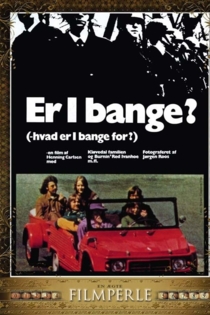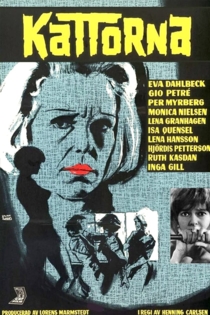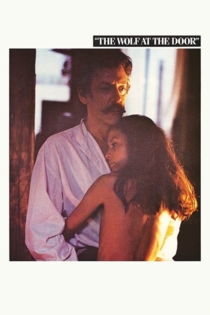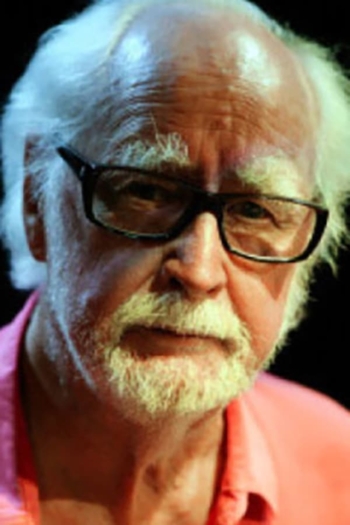
Henning Carlsen
2021Hunger
Henning Carlsen
Per Oscarsson, Gunnel Lindblom
In 1890, Pontus, the starving writer, wanders the streets of Christiania, in search of love and a chance to get his work published. All he meets is defeat and suffering while his sense of reality is withering. One moment he is delighted and the next he curses everybody. All the time he manages to maintain human dignity and pride.
Hunger
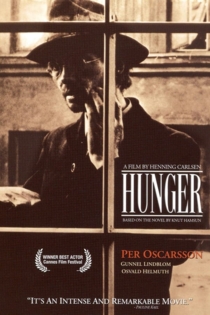
Cineastes contra magnats
Carlos Benpar
Marta Belmonte, Jesús Ángel Domínguez
How the cinema industry does not respect the author's work as it was conceived, how manipulates the motion pictures in order to make them easier to watch by an undemanding audience or even how mutilates them to adapt the original formats and runtimes to the restrictive frame of the television screen and the abusive requirements of advertising. (Followed by “Filmmakers in Action.”)
Filmmakers vs. Tycoons
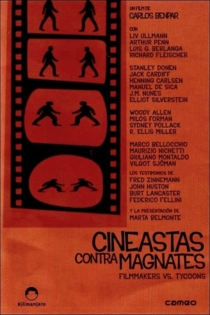
Cineastes en acció
Carlos Benpar
Marta Belmonte, Aitor Martínez
What is the state of cinema and what being a filmmaker means? What are the measures taken to protect authors' copyright? What is their legal status in different countries? (Sequel to “Filmmakers vs. Tycoons.”)
Filmmakers in Action
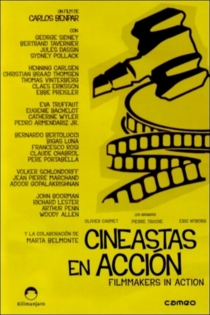
Dilemma
Henning Carlsen
Zakes Mokae, Evelyn Frank
The story begins when Toby (Ivan Jackson), a young English businessman, arrives in South Africa to take charge of a publishing firm. He knows little about apartheid and so at first sees no contradiction in developing a relationship with an elite, upper-class white woman and with a woman dedicated to fighting apartheid. But as Toby makes friends with one of the black South Africans (Zaku Mokae), and as he registers both the subtle and more obvious, deep-seated racial prejudices of the minority white population, some of the truth of the oppression here begins to dawn. That is brought to a head when tragedy strikes.
Dilemma
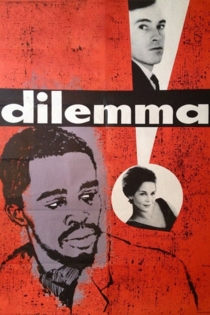
Hør, var der ikke en som lo?
Henning Carlsen
Kirsten Olesen, Jesper Christensen
The late 1930s. A young enemployed, unskilled worker walks through the streets of Copenhagen, sustaining himself partly on the dole and free soup-kitchen meals and partly on day-dreams. He spends time at a cemetry studying headstone inscriptions. Mild-mannered and of poetic bent, he understands little of an intellectual friend's advice and shies away from the love of a woman who shares her bed with him.
Did Somebody Laugh?
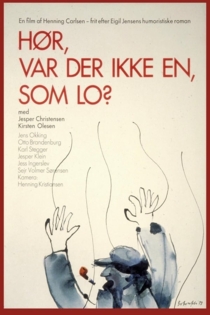
Komeda: A Soundtrack for a Life
Claudia Buthenhoff-Duffy
Krzysztof Komeda, Henning Carlsen
Krzysztof Komeda was a jazz pianist and film composer. With compositions like the lullaby for Rosemary's Baby (1968) by Roman Polanski, Komeda succeeded in writing his own chapter in the history of soundtracks. This documentary follows the life story of the composer by the means of his melodic sounds. It is a reflection on his soundtracks, which changed the common film scores forever. It is a contemporary document about the attitude to life in a time of social, political and cultural change after war, about work and exodus of Polish artists in the 50s and 60s. A story about how film music is created and how it affects people. Directors who worked with Komeda and who are also friends talk about him: Roman Polanski, Jerzy Skolimowski, Henning Carlsen and Andrzej Wajda. His wife, Zofia Komeda, and his sister, Irena Orlowska, recollect him.
Komeda: A Soundtrack for a Life
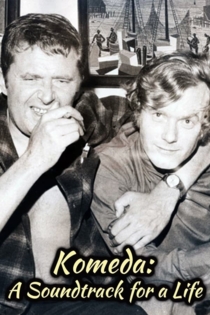
Da Svante forsvandt
Henning Carlsen
Ingolf David, Karl Stegger
Svante has disappeared and a journalist seeks Benny to hear about his relationship with Svante. In retrospect be seen Benny and Svante with Svante lived with Mrs. Jensen in Copenhagen. When Benny and Svante last meeting would Benny sure to Svante show was released. Benny seek police to report Svante missed and have given a description of Svante. For several years, we follow Benny hunt for Svante including through interviews with Nina. Police seek out the places where Svante traded and the nerve clinic he was hospitalized.
Da Svante forsvandt
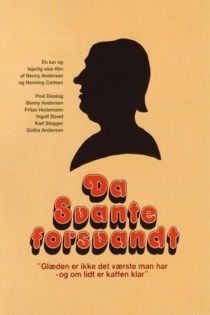
Man sku' være noget ved musikken
Henning Carlsen
Karl Stegger, Birgitte Price
This is a film about the stuff dreams are made of, yet, there is nothing elevated in this concept, on the contrary. The characters around the bar Strudsen (the ostrich) are doing what ostriches do, hiding themselves from the threats of life and keeping their dreams to themselves. Scriptwriter Benny Andersen being a poet is rendering a loving portrait of a number of persons, who fail to try to make their dreams come true, possibly not being sufficiently dissatisfied with their life after all. The manager would like a bar of his own but dare not admit to it, the butcher would like to be an opera singer, the window cleaner (sorry, window polisher) is secretly in love with the bar lady, but dare not show it and the pianist willingly listens to all the different dreams being presented to him. This film was the best accomplished movie from Henning Carlsen since his debut with 'Sult'.
Oh, to Be on the Bandwagon!
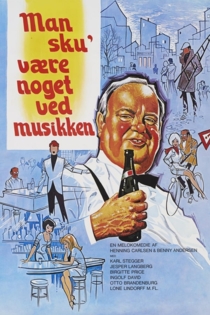
Klabautermanden
Henning Carlsen
Lise Fjeldstad, Hans Stormoen
A veteran sea captain abducts his niece for what he believes is his last chance at love. As the sad demon of the ocean Klabautermanden watches the passing of doomed ships, the niece awakens in her uncle's cabin. She makes him marry her but never allows the tyrannical captain to ever touch her. For eight years, the ship never docks as the malnourished crew wishes for death.
We Are All Demons
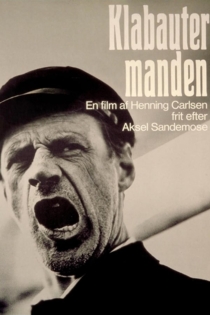
Springet
Henning Carlsen
Tobias Jacobsen is 42. When the doctors tell him he is fatally ill, the earth opens up beneath him and he finds himself plunging into the abyss. It makes him think of the time he was 13 and his girlfriend got him to jump off the balcony of her father's house with a sun umbrella for a parachute. Two stories separated by 29 years are told in parallel, but gradually intertwine into one drama. Both stories have moments of joy and tragedy, as fates wondrously separate and are brought back together again. It is a story about making a leap of faith, trusting in yourself and realizing that, ultimately, life is no good without humour, even of the darker variety.
The Leap
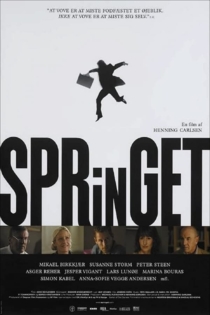
Memoria de Mis Putas Tristes
Henning Carlsen
Emilio Echevarría, Geraldine Chaplin
To celebrate his 90th birthday, an old single journalist, Sabio, decides to gift himself with an intense night of love with a virgin teenager. Rosa Cabarcas, his old friend as a brothel madam arranges him the ideal young woman, Delgadina, a factory worker, who sells her virginity to support her family, but when he sees her sleeping angelically, he loses interest in pure pleasure and falls in love with her. That love was not meant to be true, but fate changes, and that hope is born of an opportunity for unbridled love.
Memories of My Melancholy Whores
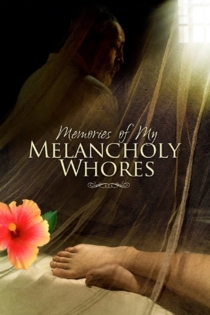
Un divorce heureux
Henning Carlsen
Jean Rochefort, Bulle Ogier
After having been rescued from suicide, a young man is the object of a bet by his doctor that the doctor can help him recover his joy in life. Ironically, the doctor's life is not a very happy one either, and his boast has a hollow sound. For one thing, although he seemingly has a "happy divorce," in which he, his ex-wife and her new husband are all great pals, it's not true. He wants his wife back. All sorts of complications arise out of these lies and distortions.
A Happy Divorce
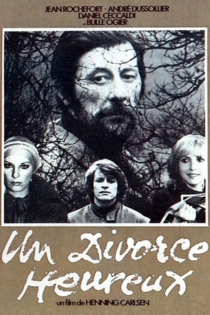
Er I bange?
Henning Carlsen
Ebbe Kløvedal Reich, Lene Kløvedal
This documentary examines a feature of Danish life in the late '60s and early '70s: the political commune. In a series of stiff and unrevealing interviews with members of the Kloevedal Commune, "Mao's Pleasure," director Carlssen seeks to discover why they have chosen to live communally. Turning the tables on the director, members of the commune also interview people who live ordinary, middle-class lives, ostensibly to find out why they chose their "lifestyles." Other footage concerns the Annisse Commune, a less radical organization which predates the Kloevedal Commune by decades. A highlight of the film is an interview with a very old woman who lives with and talks chiefly with her cats.
Are You Afraid?
